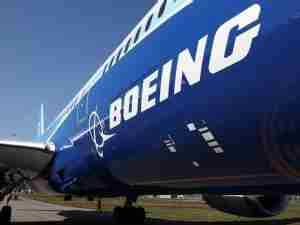FedEx CEO Smith calls Amazon challenge reports `fantastical’
By: | Mar 16 2016 at 08:16 PM | Air Cargo | Intermodal | International Trade
When FedEx Corp. Chief Executive Officer Fred Smith looks at Amazon.com Inc., he sees a valuable customer—not a mortal danger.
A major competitive threat from Amazon to FedEx or United Parcel Service Inc. is unlikely because the online retailer would have to invest tens of billions of dollars and years of effort to build its own delivery network, Smith said Wednesday. Instead, Amazon is seeking better control of its inventory and “last-mile” shipments to customers, FedEx said.
“Concerns about industry disruption continue to be fueled by fantastical—and I chose this word carefully—articles and reports,” Smith said on a conference call with analysts and investors. “In all likelihood, the primary deliverers of e-commerce shipments for the foreseeable future will be UPS, the U.S. Postal Service and FedEx.”
Amazon last week said it would lease 20 Boeing Co. 767 freighters, building on the more than 70 fulfillment centers and 23 sorting facilities it has developed in recent years. The company’s leasing plans have spurred some analysts to speculate that it would seek to build its own delivery network.
Kelly Cheeseman, a spokeswoman for Amazon, declined to comment.
FedEx Advantages
FedEx and its rivals hold advantages in the density of their networks and the revenue they earn per stop, Smith said. On that basis, Amazon won’t be able to compete.
“We’re not delivering from 50 fulfillment centers or 100 stores,” Smith said. “We have the capability to pick up, transport and deliver an item from 95 percent of the human beings on the planet, much less every business in the world, within one to two business days, door to door, customs cleared.”
Amazon has been a FedEx customer for years, and the shipping company expects that to remain the case “for many years to come,” said Mike Glenn, a FedEx executive vice president. The two companies are in constant dialogue, he said, and FedEx is well aware of Amazon’s desire for more capacity to manage inventory. Other major retailers have long held that ability, he said.
No single FedEx customer accounts for more than 3 percent of the company’s revenue, or more than 3 percent of revenue for its air, ground or freight units, Glenn said. FedEx operates the world’s largest cargo airline as well as a fleet of package delivery trucks and a freight operation.
Amazon Leasing
Amazon is leasing the Boeing 767 freighters from Air Transport Services Group Inc. and holds the right to buy as much as 19.9 percent of that company’s shares over five years. After having leased five freighters last year for a trial network, it will get 15 more by the end of this year, Air Transport Services said on a call with analysts. Amazon will hold the leases for five to seven years.
FedEx rose 6.3 percent to $153.35 at 6:51 p.m. in extended trading in New York after the company raised the floor of its full-year earnings forecast range and reported a third-quarter profit that exceeded analysts’ estimates. Profit for the year ending in May now is seen in a range of $10.70 to $10.90 a share, compared with the previous forecast of $10.40 to $10.90.
FedEx attributed the improved outlook on the success of a $1.6 billion, multiyear cost reduction plan at FedEx Express, its cargo airline, and said it would now turn its attention to making improvements at its ground transportation division, which makes deliveries by trucks and vans. Moderate U.S. economic growth will support demand for shipments, it said.
Smith forecast Express margins of about 12 percent in the current quarter, 16 percent for FedEx Ground and about 15 percent for FedEx Ground and supply chain.










